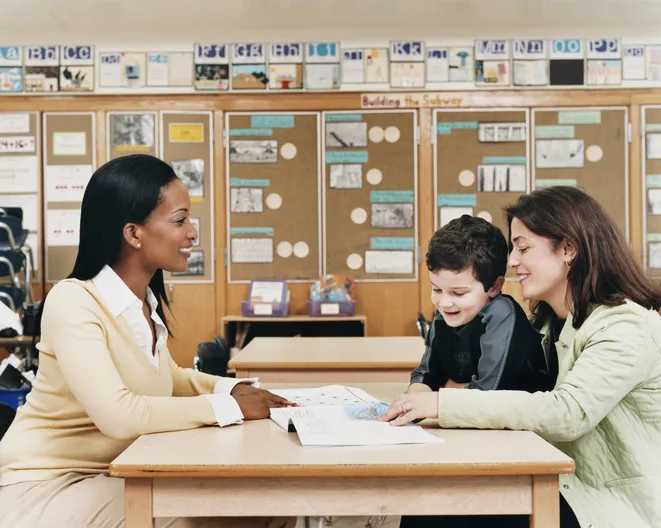
My daughter started preschool this fall and already I’ve seen the strides she’s taking as a developing toddler. She comes home with art projects in hand talking about shapes and colors and numbers while telling me which of her classmates got a boo-boo on the playground and cried. She always seems to come home with a new word, too. Last week it was “careful” and this week it’s “ta-da!” While preschool feels like the start of her early education, I have to think that the time we’ve spent at home, on play dates and playgrounds, during story time at the library, and on walks around the neighborhood must contribute to her early learning, even before she was old enough for a 2s program.
“The first 1,000 days of a child’s life are a critical time of cognitive development,” says Carol Moritz, director of NY Preschool, an affiliate of NY Kids Club. “Experiences during this period of early life impact future academic, social, and emotional success.”
Leading infant learning researcher Dr. Robert Titzer agrees, saying that about 90 percent of the brain is developed within the first five years. With this in mind, I asked a group of five experts for their advice and ideas regarding best practices when it comes to early child development.
At Home With Baby
Many experts agree, early education starts from the very beginning at home. Intentional interaction with your baby can begin even before he or she is born—the music you listen to, the way you talk, and the way you move all impact your child, says Michael Luft, director of preschool at the 14th Street Y. As soon as your baby arrives, meaningful engagement can happen in each and every smile. “Our attunement to their moods and spirit creates possibilities for them to be excited about the world and regulate their emotions,” he adds.
In fact, for the first few months babies can only see about an arm’s length away from their own faces, making it incredibly important to hold, coo, talk, and sing, all while looking in your child’s eyes, says Sally Tannen, the 92nd Street Y’s director of Parenting and Grandparenting Centers. “Babies respond to one-on-one interaction, and you are your baby’s first and best toy.”
One of the most influential—and educational—things to do with your baby in that first year is talk, and talk, and talk some more. “For newborn babies, speak in ‘parentese,’ which means using a slightly higher-pitched voice, elongating the vowel sounds, and slightly over-enunciating,” Titzer says, while adding that you should use simple but descriptive language. Try describing your baby’s senses, from what your little one sees, hears, smells, tastes, and touches, to how he or she moves. Think: “Wooow! That’s a biiig streeetch!”
According to Titzer, the number of new synapses related to language learning peaks just before 11 months, so it’s wise to focus on teaching language, and perhaps a second language if possible. In other words, more is better. It’s also important to isolate words and say just one word at a time while demonstrating its meaning, he says. This will help babies figure out where a single word begins and ends. Titzer also highly recommends teaching your baby the shape bias to help him or her learn words more efficiently. “Sort or organize objects by their shapes much more frequently than by their colors or other attributes,” he says. This indicates that the shape of an object can provide more important information about its function than its color, texture, size, or material, and that’s crucial to conceptualize letters and words.
It’s important not only to spend time with your baby at home—so you can follow their growth and development—but also to take the little one out into the world for new experiences. Luft suggests taking your baby wherever you go, to the grocery store, the park, on the subway or bus, as well as to the zoo, to provide opportunities to interact with other children and their world. And if your baby is being cared for by a nanny or daycare, take the time to have some conversations about how you want caregivers interacting with your child, with emotional and physical responsiveness and mental stimulation with lots of language learning being top of the list.
Human Interaction, Play Groups & Classes
No matter who is caring for your young child, it’s a good idea to keep technology out of sight for the most part (iPads, TVs, phones) and give babies the human interaction they need, Tannen says. Whether it’s Mom, Dad, Grandma, a caring nanny, or a devoted daycare, it’s important for children to learn about the world by hearing a loving adult narrate what they’re doing, even if they aren’t cognitively aware yet.
Going beyond descriptive narration, Roxana Reid, an education consultant and founder of Smart City Kids, points out that parents should provide their children with a good example for emotional stability. After all, kids look to adults for cues when it comes to new people, places, and encounters.“Be upbeat and excited about new situations to help your child become comfortable in unfamiliar environments,” she says.
And if you haven’t found a good playgroup or enrichment class, try to make it a priority. Reid says it’s beneficial for emotional, social, and cognitive development. “The socialization aspect of the class is important for children to begin to understand how to be a successful member of a group,” she says. What’s more, your child will learn how to follow directions from another adult and experience a different kind of structure than at home.
It’s no wonder music classes for children are so popular. According to Gail Ionescu, director of Poppyseed Pre-Nursery, singing and dancing or simply listening to music with your child is an effective way to communicate because it conveys emotion and an appreciation of beauty, which stimulates your child’s mind and curiosity. Be it a stand-alone class or part of a preschool program, music education typically means better math scores too, Moritz adds. “Children exposed to music programs have been found to speak more clearly, develop a larger vocabulary, learn the sound and tone of words, and strengthen social and emotional skills, as well.”
By the time most babies reach their first birthday, they’re incredibly physical, itching to be independent, and keen to conquer their world. “To help your child experience success and give him a feeling of accomplishment, create spaces within your home that will allow him to freely explore,” Reid says. Place baskets around your home with board books and toys that are easily within your child’s reach.
As far as classes, gym-based programming is all about strength, coordination, and stamina, with the added bonus of boosting social skills, self-control, self-efficacy, patience, collaboration skills, and self-esteem. “What surprises people the most is that there is very new research that has established a link between motor skills and cognition,” Moritz adds. The early neural pathways that are formed during gym class have a multitude of benefits. So signing up your baby or tot for a tumbling could mean not only better motor skills, but also higher math and reading scores.
The Value of Nursery School
The rapid brain development that takes place during the first few years coincides with the start of nursery school. This opportunity for an early education taps into a child’s blossoming cognitive skills, which lays the foundation for reading, math, and science, in addition to gross-motor skills, social-emotional growth, character skills, and executive functioning, which includes everything from impulse control to problem solving, Moritz notes. While a child can do just fine or even advance in these areas without structured early education and/or preschool programs, it’s now widely recognized that a quality program gives children a leg up. Nursery school provides for a concentrated time of purposeful learning. A teacher will instruct in a way that may be completely different from a parent or other caregiver. And the classroom means exposure to a wider array of educational materials, which maximizes the potential for early learning, Moritz says
Moritz points out that recent research indicates that early schooling with developmentally appropriate programs is vital not only to individual development in each child, but also key in fueling our national economy. “Children who attended an early childhood program are more likely to go to college, maximizing their earning potential,” she says.
Tracking Progress
If you’re wondering how your young child is doing, realize that there can be a wide range for what’s considered normal. Tannen says that babies typically start walking around 9-16 months and talking between 1-3 years. “As long as progression can be seen from month to month, a baby will develop at their own pace,” she says.
Taking a proactive approach can be smart, adds Reid. If your pediatrician believes there’s a developmental delay then get an evaluation through Early Intervention, which provides free services in your home if your child qualifies.
And you should always trust your gut. Even if your pediatrician has reassured you otherwise, seek a second opinion from a developmental pediatrician if you’re worried, Tannen says.
Keep In Mind
In between all of the exploring at home, on the streets, and in the classroom, I’m crossing my fingers that my daughter holds onto her natural curiosity and love of learning that so many young children have. To that end, Reid says to praise effort, not just the end result. So instead of saying: “You finished the puzzle! You are so smart,” try: “I noticed that you worked really hard on that puzzle and I am so proud of you that you finished.” I did this the other day and my 2-year-old smiled wide while keeping her eyes and hands on the puzzle.
“The more you can get down on their level, play, laugh, and enjoy one another, the stronger your child’s sense of self and understanding that they are wanted and cared for will be,” Luft says. What better lesson for our children to learn than that?













